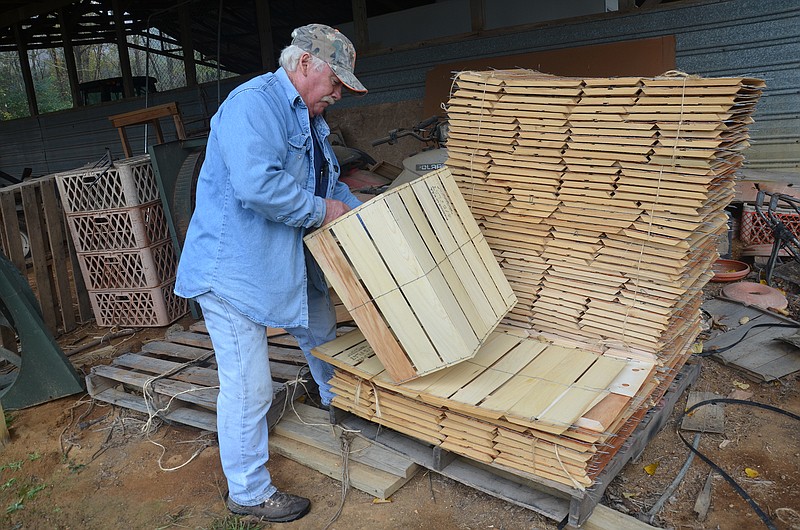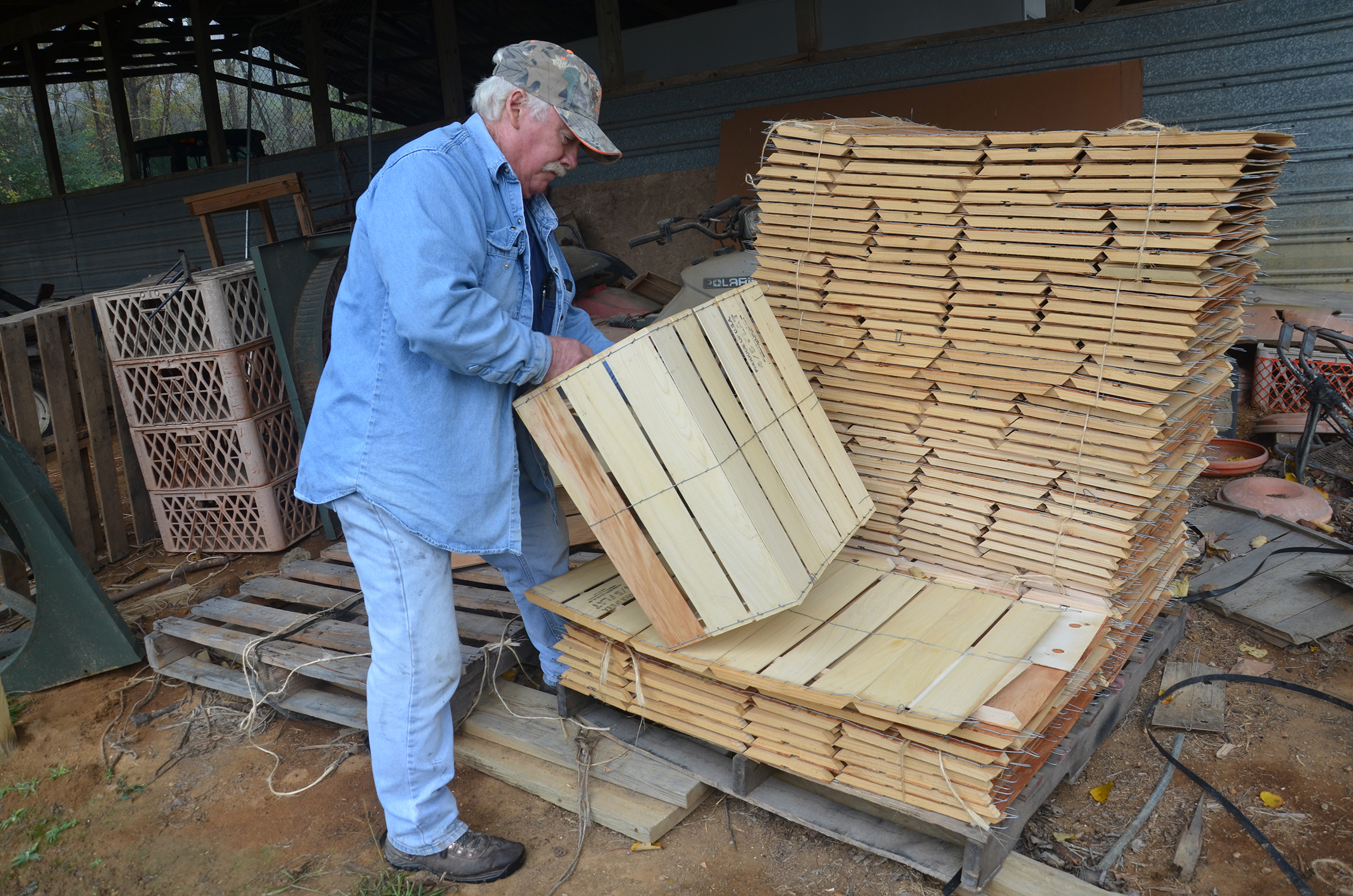Just southeast of Ringgold is a hot spot for bobwhite quail.
"We grow about 150,000 a year, and we've got about 140,000 on hand right now," said Thomas Stockburger, part owner of Triple "S" Quail Farm and Hunting Preserve in Tunnel Hill, Georgia.
He raises them in four old chicken houses. He's been doing it for about 17 years.
Stockburger, who was a chicken farmer for 25 years, has a reason to prefer quail.
"You are your own boss is the biggest thing. You don't have to fool with any companies," he explained.
"There was a guy that Chris, my son, was going to church with at one time, and he told us that's what we needed to try. We tried it in just a small way, and now we've grown to a pretty good size."
He also raises about 6,000 Chinese ring-necked pheasants each year.
Stockburger said the quail hatchlings are about a day old and a little bigger than a large bumblebee when he gets them from Cedartown or Waynesboro, Georgia. They quickly become airborne.
"We really want to see them flying when they are eight to 10 days old. They will be flying by then," Stockburger said.
There's nothing special about how they are housed except "we grow them inside and try to grow them in the dark."
Why the dark?
"It keeps them from pecking their feathers out. It makes the feather quality much better, and plus it makes them wild," Stockburger said. "When they get out in the daylight, they are wild. You want these birds wild. They are not supposed to be tamed. They are for hunting. They've got to fly, so that helps all of that."
Also to aid their wildness, exposure to humans is very limited.
The quail generally are housed for about 16 weeks. The grower tries to sell or release them before they are 20 weeks old. Corn, soybeans and a premix ingredient that includes vitamins comprise the birds' diet.
"We make our own feed. We've got a feed mill set up, and we do the whole thing," Stockburger said.
Raising quail is not without risks. Doug Nofsinger, a retired manager with Pilgrims Pride - one of the largest chicken producers in the world - said quail are subject to many of the same diseases that can afflict chickens, including avian flu, bronchitis, worms, bacteria, salmonella, cancers and tumors.
"There are vaccinations and/or treatment for most of these," Nofsinger said.
Stockburger said that from October until March - prime time for quail hunting - he makes two trips a week to Providence, Kentucky, the location of Winghaven Lodge, which buys about 50,000 birds a year.
One of his biggest local customers is Bendabout Farm in McDonald, Tennessee. He said he delivers 14,000 birds over a three-day period for quail hunters at the Bradley County venue.
In addition to raising quail to sell, the Stockburgers have their own land for bird hunters to use, and about 400 a year do so, Thomas said. The property is just off U.S. Highway 41, less than three miles southeast of downtown Ringgold.
"We just put birds out for them, and then they hunt them with their own dogs," he said.
There's more to their service than just putting the birds on the ground.
"We spin them and make them a little dizzy where they won't fly off until the bird hunters come around, and then they flush them up," Stockburger said. "Then they fly, and then they shoot them."
The spinning is done sometimes by putting the birds in a cloth sack and twirling the sack about a dozen or so times.
"They will sit there a long time, if you do it right," Stockburger said.
"Most of the time they will find them within the hour anyway. They would stay there pretty well indefinitely. They will get up and move around, but they won't fly off. Quail don't fly, unless something makes them fly. A quail is a ground bird. They live their life on the ground."
This time of year, all the ground cover adds to the birds staying put, he said. Sometimes the hunters don't hit their target, but they pay for the number of birds set out anyway.
Ringgold resident Terry Clark recalled that his deceased father, Ralph "Buddy" Clark Jr., started raising quail around 1985 and did so for about 10 years.
"He didn't have a farm. He raised them in the backyard in what looked like a chicken house. I think it was about 100 feet long," Clark said. "He raised about 10,000 birds at the max. Most years he raised about 7,000 birds, I guess."
Buddy was a truck driver who starting raising quail as a hobby when he retired. Clark said his dad bought the first set of hens and then would sell some of them and keep some to keep his hobby going.
"I think he could set 1,500 eggs at a time," Clark said.
His dad's first equipment "looked like one of those electric skillets." When the eggs hatched, Buddy put the hatchlings into a brooder, and to Terry that looked like a big lamp. Buddy later bought a more upscale brooder.
Not only did he raise and then sell the quail, but for a brief time there was a sideline business.
"Around Christmas time every year he would have a bunch of people off the (White Oak) mountain up there - I can't remember who they were, but they would want to buy them dressed, and he would dress a couple of hundred for them," Clark said. "He didn't have a license to do that, so he only did that for about two years for some friends."
As to what happened to his dad's quail gear, "His health became bad and he couldn't go outside to take care of them," Clark said. "He became so depressed that he called up a friend that had expressed interest in raising quail and gave him all the equipment he had accumulated to help get him started."
Contact Gary W. Petty at sports@timesfreepress.com.

